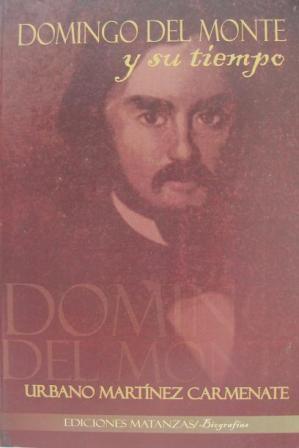2.2.6 Influence of the personality and work of Domingo del Monte (1804 – 1853) on the literary life of the country

Domingo del Monte was a somewhat controversial figure due to certain inconsistencies between his political thinking and actions, as his beliefs were not entirely transparent. His marriage to Rosa Aldama, the daughter of a wealthy merchant and landowner belonging to the emerging bourgeoisie, allowed him to rise to a social position from which he would contribute significantly to the development of Cuban culture and literature. He also possessed extensive knowledge and a keen interest in the country’s development from the perspective of the dominant economic sectors.
His attempts to establish his own literary heritage in the country, albeit by mimicking what was considered artistic language in Europe and particularly in Spain, of whose culture he was always a faithful admirer and acolyte, included the project to create the Cuban Academy of Literature, which was aborted and would even lead to his exile; his critical, costumbrista, and historiographical contributions to various periodicals; the gatherings he organized at his residence; and the correspondence he maintained with figures from various fields, especially the literary world.
Purity and elegance were his aesthetic ideals, which he carried into his work, with some successes in prose, although he erred in attempting to apply the same principles to poetry as to prose, both in the romances he composed and in his critical exercises. On this point, José Lezama Lima would affirm: “By seeking to unite the most classical and traditional forms with a distinctly Cuban content—landscapes, people, customs—Del Monte brought to Cuban poetry a questioning rather than a solution to the expression of what is ours.”
Although he was quite cautious about assuming and expressing a specific political creed, he clearly opposed the slave trade and the existence of slavery, not so much for ethical connotations but because he considered it an outdated system that threatened economic progress.
Whether he ever became an independence supporter is unclear from the framework of his work, but it is evident that his cultural initiatives within the official sphere were always curtailed by the Spanish colonial power, which even drove him into exile, and he must have harbored some resentment; therefore, he must have exerted his influence through the social gatherings and correspondence he maintained with numerous writers.
Above all, he would subtly establish his personal literary taste as a collective aesthetic for readers and authors. He acted as a kind of patron in the work of writers and poets such as José María Heredia and José Jacinto Milanés, and supported numerous initiatives in the creative and cultural spheres. However, he also imposed his own biases on the perception of art, and thus his influence was not always entirely beneficial.
His significance for Cuban literature lies not in his literary work alone, which in itself is essential in the history of national thought and linguistic expression; but rather in the body of his critical writing, which undoubtedly contains very accurate assessments of authors, works, and literary movements—as well as some somewhat erratic judgments regarding everyday life as a subject for art and some colloquial overtones already evident in our poetry—and fundamentally in his role as a promoter of the culture and literature of his time.








